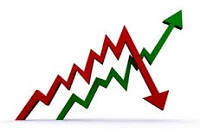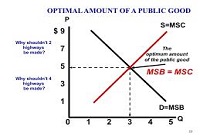Inflation, Deflation and Disinflation – 3 concepts that you must know to know economics
In the recent economic conditions, if we refer any newspaper or watch any news channel we would very easily find terms such as, Inflation, Deflation and Disinflation are becoming increasingly common to hear. For most of the common people we just have some general idea about inflation but when it comes to deflation and disinflation we have a hard time. Now these three terms are pertaining to a single term called as Price Level, meaning at what prices various commodities are available to us in the market, and are terms describing its various conditions.
Talking about Inflation, it is the general increase in the prices of goods and various services over a period of time. For e.g. Take the prices of goods that you used to buy few months back and now if you go and buy the same good and if you have to pay more for the same good , it would mean Inflation has affected it. Now one thing to understand is that whenever inflation levels of prices skyrockets the purchasing power of each currencies decrease and hence people can buy fewer amounts of goods and can avail fewer services for them. To measure inflation of prices we have to know the rate of inflation which we get from knowing the General Price Index, in most cases we use the Consumer Price Index (CPI).Inflation Rate is derived from the net annual increase in the percentage of Consumer Price Index. CPI refers to the variation of price levels in a basket market as for the goods and services that are availed by the customers. A term known as Hyperinflation is also associated with Inflation which refers to the economic condition of very high increase in the price levels, as it was never seen before.
Deflation, as the name predicts, is the condition when price levels fall. It’s just the exact opposite of Inflation. When the inflation rate goes below zero percent then that economic condition is referred to as Deflation. For e.g. Take the prices of goods that you used to buy few months back and now if you go and buy the same good and if you have to pay less for the same good , it would mean Deflation has affected the market. Now deflation is not that good for economy as it causes people to stop producing goods as they start getting reduced price for their produce. Various economists around the world have a consensus that deflation affects the economy in a bad way such as increasing debts and even worsening the ongoing recession in a country. Many people who have less idea of the working of economies like few politicians have sometimes even advocated Deflation but in reality Deflation in any country for a long period of time would be detrimental to its growth and development. The instance of Deflation was seen in the United States of America during the time of Great Depression when the prices of almost all goods and services felt abruptly.
Disinflation is in fact the most misunderstood term of all time, many people confuse it as just the exact reverse of inflation but it is not so much, Disinflation means a condition of impeded inflation, meaning the inflation levels have reduced but they have not gone below zero, as if it goes below zero Deflation would occur. In very simple terms it just means as decrease in the rate of inflation. For e.g. Take the prices of goods that you used to buy few months back and now if you go and buy the same good and have to pay a little more for the same good, (you would have observed this by comparing the prices when last time you went to buy the goods and had to pay more than what you are paying right now), disinflation would have occurred. Disinflation can also be understood by the unemployment rate, for e.g. If the rate of growth of unemployment is well above the natural rate of growth then the Inflation rate would go down and will result in Disinflation. For an economy to prosper each of the parameters should be closely monitored, most important being Inflation, as it decides the direction in which an economy is proceeding.
Click here for government certification in Accounting, Banking & Finance





5 Comments. Leave new
Well articulated!
nice article..
Purely Economical … Seems you are another Eco undergrad 😛
A worth read.
good work…